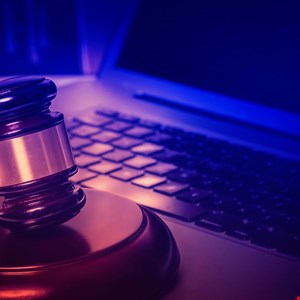- AI-Ready Optics Transceivers Partner Enablement Campaign
- This 5-in-1 travel charger is the only one I'll need this summer (and it's full of power)
- You can turn your Google Search into a podcast now - here's how
- Why I'm switching to VS Code. Hint: It's all about AI tool integration
- The Impact of Quantum Decryption
Lapsus Teen Suspects Have their Day in Court

Two British teenagers have been charged with hacking offenses in an ongoing investigation into the infamous Lapsus ransom group.
A statement issued on Friday by City of London police detective inspector Michael O’Sullivan noted that the duo would appear in Highbury Magistrates Court the same day.
Due to their ages, reporting restrictions are in place, preventing the identification of the 16 and 17-year-old suspects.
“Both teenagers have been charged with: three counts of unauthorised access to a computer with intent to impair the reliability of data; one count of fraud by false representation and one count of unauthorized access to a computer with intent to hinder access to data,” the statement noted.
“The 16-year-old has also been charged with one count of causing a computer to perform a function to secure unauthorized access to a program.”
Although the police did not mention Lapsus by name, a BBC report did, stating that the two youngsters had been released on bail.
According to the same report, prosecutor Valerie Benjamin said during the hearing that the case should be tried at a crown court because of its complexity and the large sums of money Lapsus tried to extort from its victims.
At the end of March, City of London police said it arrested seven suspects between the ages of 16 and 21 in connection with the group. A report claimed the ringleader was a 16-year-old from Oxford with autism, who went by the online monikers “White” and “Breachbase.”
The group has a high-profile string of victims to its name, including Samsung, Nvidia, Vodafone, Microsoft and Okta. Despite the arrests, it added another to the list just last week, in the form of an Argentinian software developer known as Globant.
Lapsus is claiming to have published a 70GB torrent file featuring source code stolen from the company.
It remains to be seen what role, if any, the two UK teens played in the group and whether it has affiliate members around the world, making both attribution and disruption more difficult for investigators

